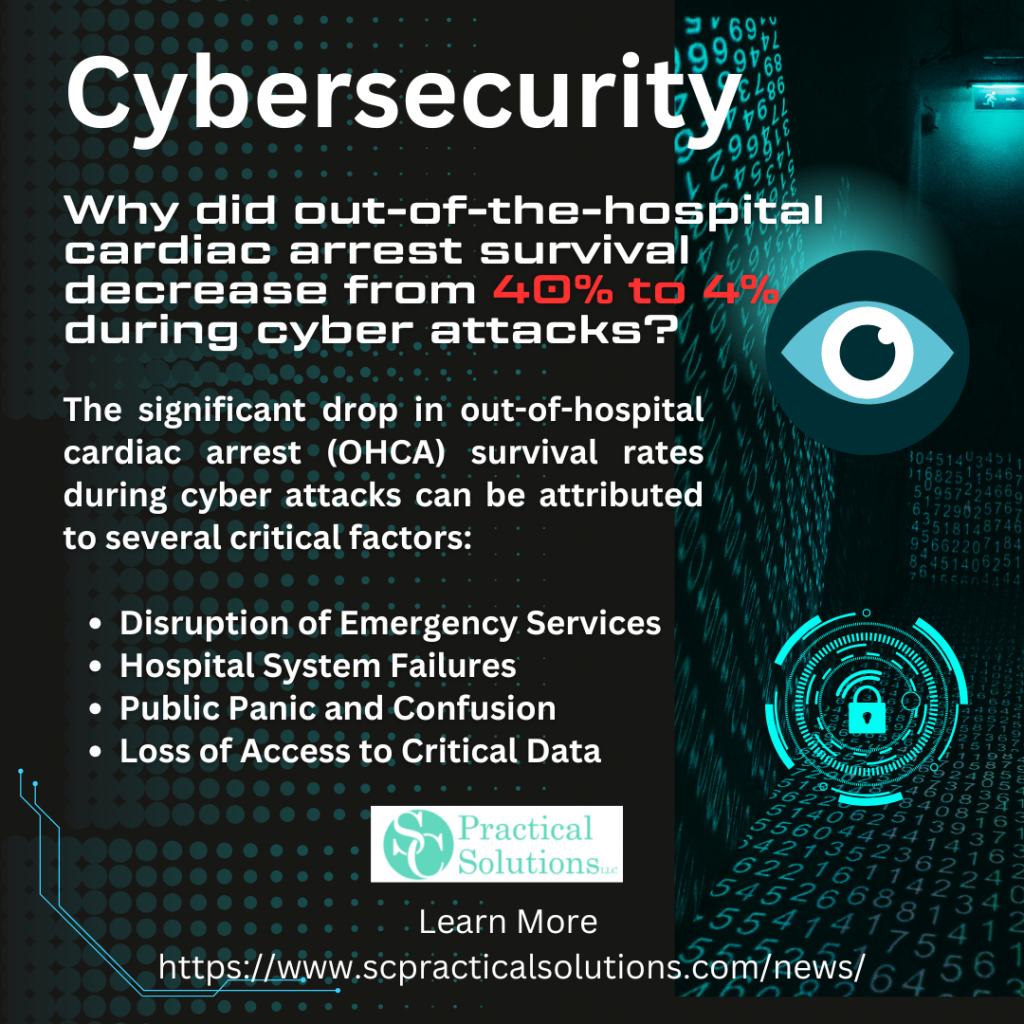
The significant drop in out-of-hospital cardiac arrest (OHCA) survival rates during cyber attacks can be attributed to several critical factors:
- Disruption of Emergency Services: Cyber attacks can cripple the communication systems used by emergency medical services (EMS). This can delay the dispatch of ambulances and the arrival of medical personnel, which is crucial for the survival of OHCA patients.
- Hospital System Failures: Hospitals rely heavily on digital systems for patient records, monitoring, and treatment protocols. Cyber attacks can disrupt these systems, leading to delays in treatment and reduced quality of care.
- Public Panic and Confusion: Public panic can increase emergency calls and strain on EMS resources during a cyber attack. This can result in longer response times and reduced availability of immediate medical assistance.
- Loss of Access to Critical Data: Cyber attacks can result in the loss of access to critical patient data, which can hinder medical professionals’ ability to provide timely and accurate treatment.
These factors combined can drastically reduce the chances of survival for individuals experiencing cardiac arrest outside of a hospital setting.
Posted In: Resource Information
